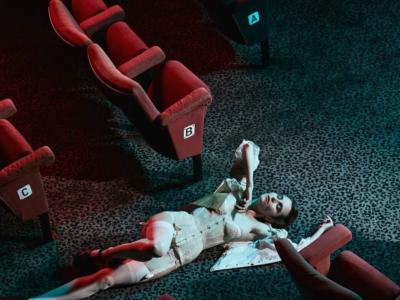When Carlos Vives opened his Royal Albert Hall Concert with Dejame Entrar (Let me in), the infectiously upbeat love song and title of his hit 2001 album, Colombian flags were held aloft across the great hall, bobbing above a sea of gyrating hips. From the word go, Vives enveloped the (predominantly) Latino throng in his unique fusion of vallenato (Colombian folk music) and modern rock pop.
This was a crowd who was here to party and they had good reason to celebrate; after 60 years of conflict the Colombian government declared an end to its war against the FARC guerrillas the very day Vives stepped out onto the RAH stage. But the peace deal is controversial and Carlos isn’t one to court controversy. Vives is about unifying and Colombia’s ultimate pop idol opted for ‘no comment’. Besides, Vives wants his music to do the talking.
From the very start of the concert, images of rural Colombia – the land of cowboys of the Magdalena region on the Colombian north coast from where Vives hails – were projected on a giant screen above the stage. The images clearly resonated with an audience, who, many thousands of miles away from their beloved homeland, were keen to celebrate a country far removed from Netflix’s Narcos, a country devoid of war but filled, rather, with the best of what Vives’ Colombia has to offer: the tranquil llanos - the arid, flat lands of the Colombian gauchos and the land of escapist soap operas – let us not forget that Vives’ big break came as an actor in the 1990s telenovela 'Escalona'. In Bailar Contigo Vives appears as his telenovela character of old, a latter day Carlos Gardel wooing his beautiful novia.
With his cover of La Gota Fria, a song composed in 1938 and once proposed as an unofficial Colombian anthem, Vives evokes the ‘cold sweat’ that a duelling accordion player broke into when he couldn’t keep up with his rival – an ‘old school’ rap battles if you like to the death. Vives sings about his homeland, like the great troubadours and “el Nobel” Gabriel García Márquez before him, bringing the landscape of magical realism - his homeland – alive for a new generation.
Be it through vallenato or the caribbean rythms of cumbia Vives expresses, perhaps better than any of his contemporaries, the musical heritage that is uniquely Colombia’s: Afro drum, guacharaca and the European accordion – a perfect metaphor for Colombia’s mestizo heritage. Carlos, sweating and plucking a diamante studded guitar – his only nod to bling – heaped praise on his young talented collaborators, artists who have come out of el Chocó, Colombia’s poorest region on the pacific coast, celebrating the new sounds of reggatón with ‘virtual’ present singers and dancers in images flashing over the stage.

Vives’ finale was Bicicleta, a song recorded with Shakira, a fellow costeña, which evokes both the warmth of the coast and their special friendship. Instead of Shakira we were treated to exotic images of Cartagena transport us to the jewel of the Caribbean. Carlos appeared on a red bicycle, wheeling it around the stage like an oversized kid. Geeky? Yes. Cheesy, you bet. Perhaps only Vives could could get away with it because he feels so refreshingly authentic, a symbol of unity, unashamedly patriotic, unabashedly brandishing romantised images of his telenovela homeland. That’s why even if you hate vallenato you can still love Carlos Vives.
While Carlos gave politics a wide birth he was keen to pinch a metaphorical leg…“Is it true that in the UK no one dances together in nightclubs? That’s insane, in Colombia we like to get real close!” The crowd erupted in laughter as each clutched their neighbour in intimate embrace. In a week that saw the UK vote itself out of Europe, Remainers and Brexiteers at a standoff and the nation facing a major identity crisis, it was truly heartening to see Vives and his fellow Colombians come together in unity, proud of where they are from and sure of their identity. Shame that there weren’t so many Brits in the audience. The UK could sure do with a big dose of Vives…feel the love.















